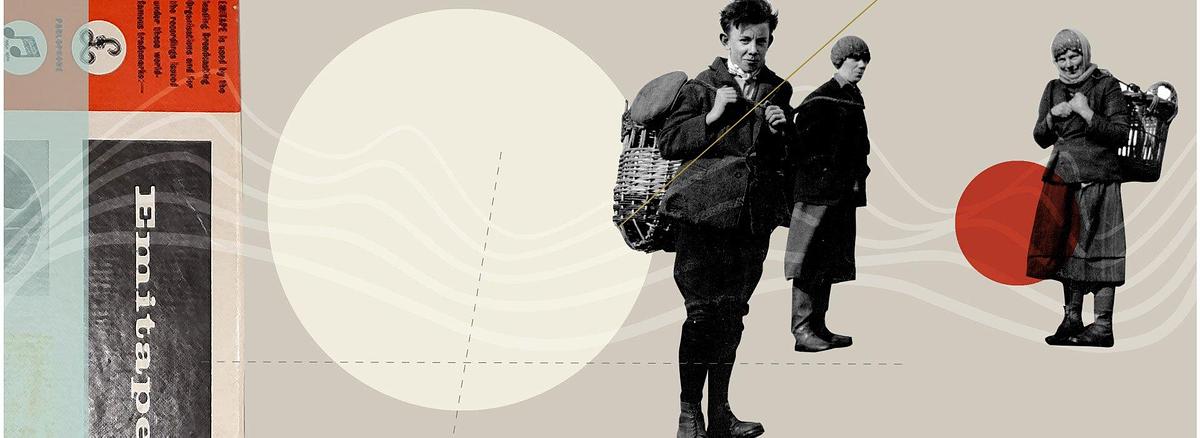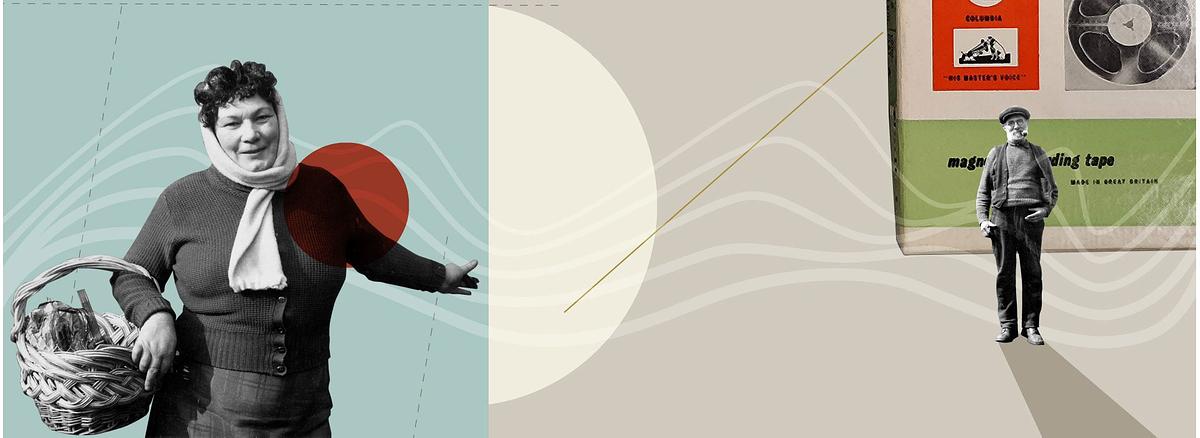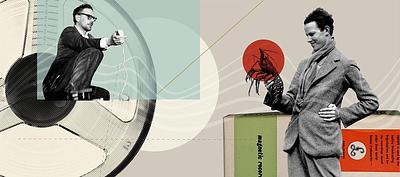
Featured Fieldworkers
Most of the recordings on our website were made by academics or students of folklore studies, collecting traditions from everyday people for research purposes and in some cases to ‘save’ what were believed to be dying customs. Many recordings were also made by skilled amateur researchers and their efforts were highly influential in the development of fieldwork methods. We call all these researchers ‘fieldworkers’ because their aim was to document traditional behaviours, customs, oral and material traditions in their natural settings, such as the family home, folk clubs, places of work, etc.
Recorded sound fieldwork revolutionised folklore collecting, since researchers previously had to rely on written notes compiled during or after their field trips; even the most carefully transcribed notes were subject to biases or mis-transcriptions, whereas a sound recording allowed researchers to listen back to their contributors again and again, finding new insight each time.
Below you’ll see a selection of the most noteworthy fieldworkers whose recordings are available on this website. This list is just the start however, and we’ll continue adding to it as the website develops.
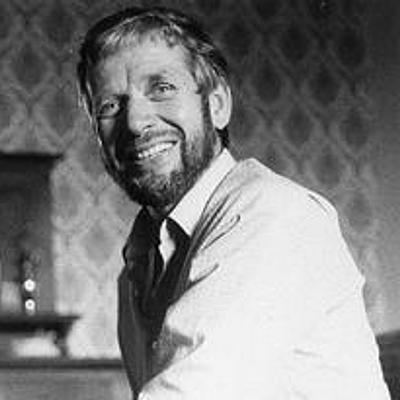
Peter Cooke
Dr Peter Cooke was one of Britain's leading ethnomusicologists and folk music researchers, with a long and productive career covering not only the music of Scotland, but also of eastern Africa.
In his role as the lead music researcher at the School of Scottish Studies, Peter focussed on deploying the best available technology to record musicians and singers in Scotland – and indeed seeking out the best performers to record. His fieldwork in Shetland from 1970-1980 formed the basis of his doctoral thesis on the Shetland fiddle tradition.
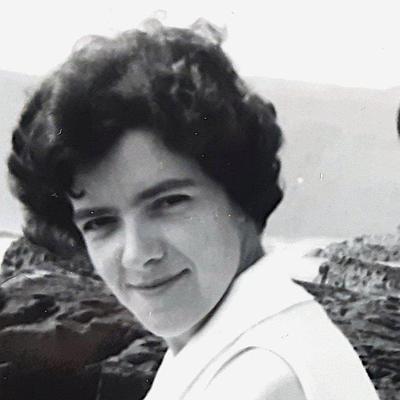
Morag MacLeod
Morag MacLeod was born in 1936 in Scalpay into a strong Gaelic-speaking community. She received her early schooling at the primary school on the island, before leaving – in the footsteps of many Gaels in the mid-20th century – to receive a secondary education on the mainland at Inverness Royal Academy. She graduated with an MA from the University of Edinburgh in the early 1960s, and joined the School of Scottish Studies thereafter as a text transcriber in 1962. She trained as a teacher at Jordanhill in 1963, before returning to work at the School, where she remained for almost 37 years.
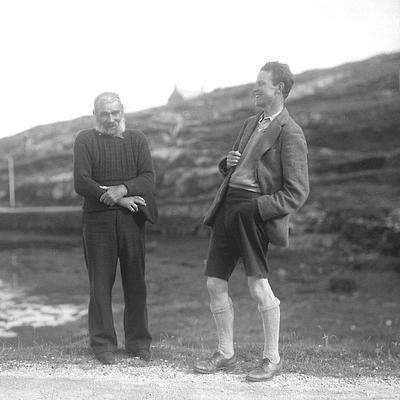
John Lorne Campbell
John Lorne Campbell, or Fear Chanaigh (the Laird of Canna) as he is known in Gaelic, is one of the most prolific fieldworkers featured on the Tobar an Dualchais website, and without a doubt one of the most important figures in Gaelic scholarship of the 20th century. A pioneer in the use of modern recording technology in fieldwork, Campbell was a trailblazer for the modern collection of folklore in Gaelic Scotland and was a leading figure in the campaign for the establishment of an institution of folklore collection in Scotland, which led in 1951 to the establishment of the School of Scottish Studies.
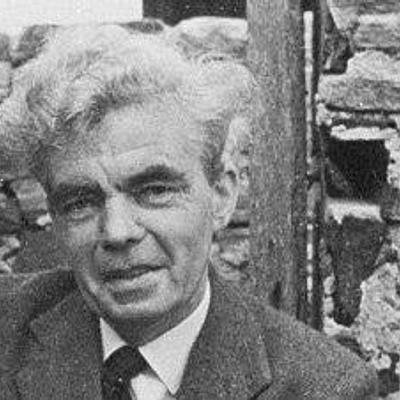
Ian Paterson
A primary school teacher for most of his working life, Ian Paterson was a late convert to the School of Scottish Studies and to fieldwork, but his contribution is nevertheless immense. Between the years of 1965 and the 1980s, he recorded hours of song, story, poetry, history, and traditional knowledge, mostly from the people of Berneray. Much of this invaluable record of 20th-century Berneray is now available on the Tobar an Dualchais website, where it provides a rich resource accessible to all.
.jpg)
Hamish Henderson
Hamish Scott Henderson is one of the most well-known and most prolific fieldworker-scholars to have contributed to the School of Scottish Studies sound archive, with a collecting career spanning over 40 years. Moreover, he is considered by many to be the ‘father’ of the Scottish folk revival due to his efforts to promote the folk traditions of Scotland through festivals, commercial recordings, and his active support for young people interested in learning from older generations of singers and storytellers.
_via_FMcR.jpg)
Fred MacAulay
A veteran of the Second World War, Fred MacAulay dedicated his life to the Gaelic community, travelling the country to record Gaels in every corner of the Highlands and Islands and championing the cause of regular Gaelic broadcasting in the hallowed halls of the BBC. His recordings on Tobar an Dualchais are testament to the long struggle for the recognition of the Gaelic community’s needs in the world of media and politics.
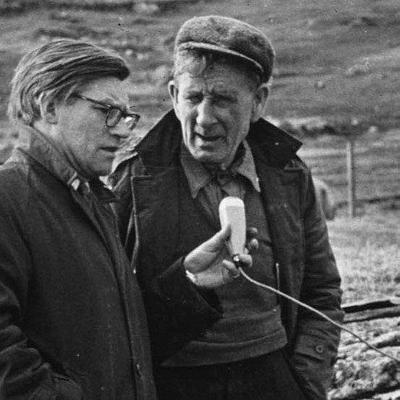
.jpg)
Dr John MacInnes
Dr John MacInnes (Iain mac Ruairidh mhic Iain mhic Nèill) was one of the most prominent figures of Gaelic scholarship the late 20th and early 21st century. Famously described by the Rev. William Matheson as the ‘last of the native scholars’, MacInnes carried out his work with an inherent understanding of the Gaelic world and of the Gaels from which he recorded hours of song, story and history. He leaves an unparalleled legacy of scholarship, including many hours of field recordings, which Tobar an Dualchais is privileged to host.
.JPG)
Donald Archie MacDonald
A renowned Gaelic scholar and folklorist, Donald Archie dedicated a lifelong career to the recording of Gaelic story and song, and of Hebridean and Highland life. During his thirty-two years with the School of Scottish Studies, he carried out fieldwork across the Gàidhealtachd – from Islay in the south, to Lewis in the north, and also in Ross-shire and Sutherland on the mainland. As a legacy he leaves around eight hundred tapes of recordings, many of which we have the privilege of hosting on the Tobar an Dualchais website.
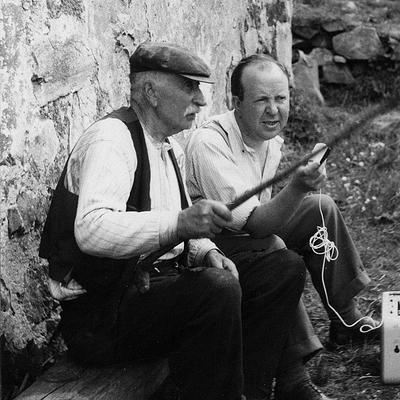
Calum Iain Maclean
One of the pioneering fieldworkers of the School of Scottish Studies, there are few others who can parallel Calum Iain Maclean in terms of his contribution to the field of Scottish Studies and to the preservation of a culture and way of life which has changed dramatically in the 70 years since he began recording the songs, stories and traditions of the Highlands on New Year’s Day 1951. In his nine years collecting on behalf of the School in Scotland, Maclean carried out hundreds of recordings, which was said to amount to around one hundred miles of tape.
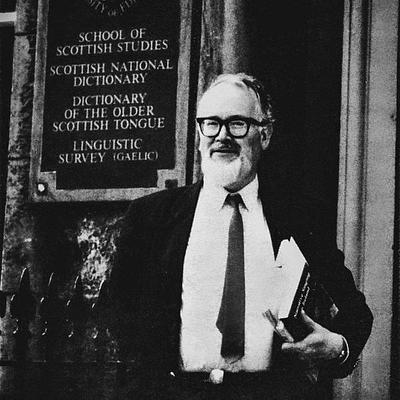
Alan Bruford
Alan James Bruford was born and brought up in Edinburgh, and would go on to have a profound influence on the development and resources of the School of Scottish Studies in his capacity as Archivist, and later also Senior Lecturer.
His contribution to the study and preservation of Gaelic folklore is extensive and invaluable to our understanding of both of the Gaelic oral tradition and of life in the Highlands in the late 19th and 20th centuries.
